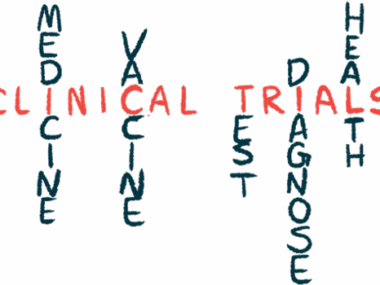Zydus cleared to begin US trial of oral therapy usnoflast for ALS
Phase 2b trial to involve 210 patients, company says
Written by |

Zydus Lifesciences has been cleared by the U.S. Food and Drug Administration (FDA) to initiate a Phase 2b trial testing its experimental oral treatment usnoflast in people with amyotrophic lateral sclerosis (ALS).
The trial is expected to enroll 210 ALS patients. Each will receive one of two usnoflast doses (50 mg or 75 mg) or a placebo for 36 weeks, or about eight months, after which all will have the option to enter an open-label extension part and receive the experimental therapy for another 16 weeks.
The trial’s main goal is to determine whether usnoflast can slow the progression of ALS, as measured by declines in the ALS Functional Rating Scale Revised (ALSFRS-R) over the initial 36 weeks. Changes in lung function and in the levels of several ALS biomarkers will also be assessed.
The randomized, double blind, placebo-controlled trial will be led by Merit Cudkowicz, MD, director of the Sean M. Healey & AMG Centre for ALS, who is also leading the HEALEY ALS platform trial and several other important trials in ALS.
“Zydus is committed to unlocking new frontiers in neuroscience and develop transformative breakthrough medicines,” Pankaj Patel, chairman of Zydus, said in a company press release.
Oral therapy aims to block inflammasome
The exact mechanisms that drive the onset and progression of ALS remain poorly understood, but inflammation is thought to contribute to the damage and death of nerve cells that marks the condition.
Usnoflast, previously known as ZYIL1, is an orally available small molecule designed to reduce inflammation by blocking the NLRP3 inflammasome. This is a group of proteins that can sense and respond to danger, helping the body mount an immune response when in contact with a foreign invader. NLRP3 is overactive in people with ALS and seems to contribute to the disease-driving inflammation, which makes it a promising target for treatments.
The trial follows a Phase 2a trial (NCT05981040) in India. Zydus said results from that study will be presented at an “upcoming medical conference” and published in a medical journal.
That proof-of-concept Phase 2a trial investigated three doses of usnoflast (25, 50, and 75 mg) against a placebo in 24 adults whose symptoms had started within nine months of enrollment. Treatment was given as twice-daily capsules for 12 weeks.
Similar to the U.S. trial, the main goal of the Indian trial was to determine whether usnoflast could slow disease progression compared with a placebo. Secondary measures included time to death or permanent respiratory support, changes in lung function, and safety.






